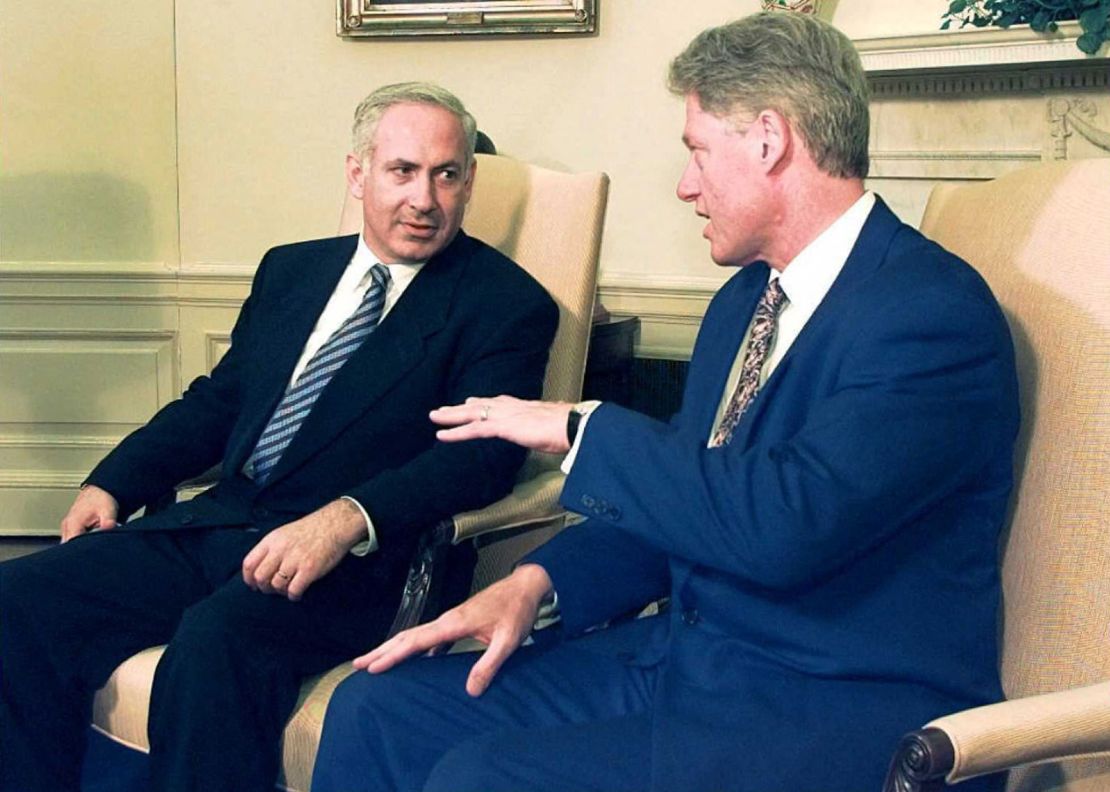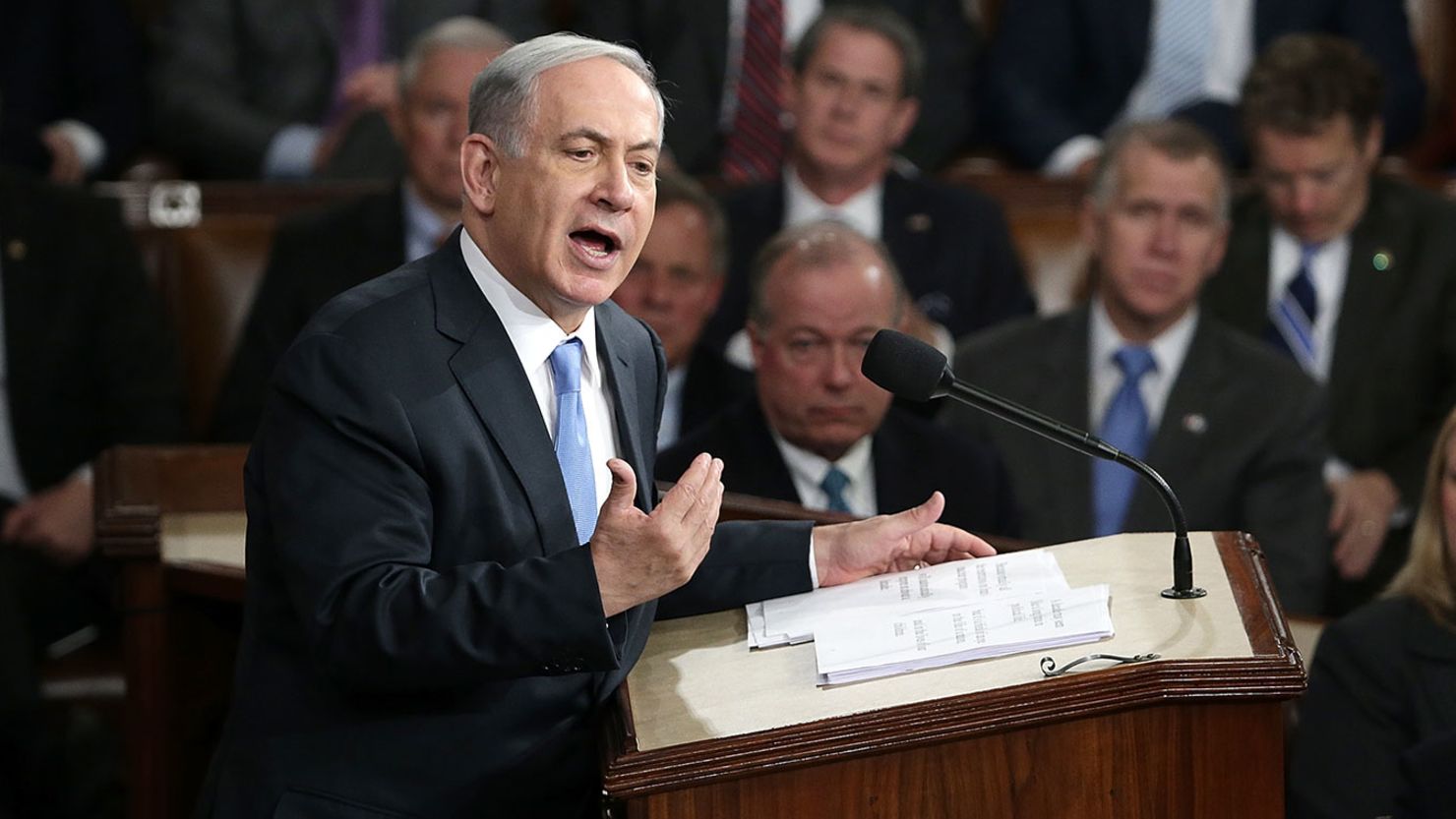A version of this story appeared in CNN’s What Matters newsletter. To get it in your inbox, sign up for free?here.
Benjamin Netanyahu has been weaving in and out of US politics for decades.
When the Israeli prime minister addresses a joint session of Congress on Wednesday, it will be his fourth such appearance since 1996, more than any other foreign leader in history and the same number of addresses to Congress a US president gives during one term.
Netanyahu has known President Joe Biden for decades, but Biden doubts Netanyahu’s sincerity. The Israeli leader is still trying to regain the trust of former President Donald Trump, who he offended after the 2020 election.
Netanyahu earned the undying enmity of former President Barack Obama for trying to tank the Iran nuclear deal. He was close personal friends with Mitt Romney, Obama’s challenger in 2012 and now a US senator, from the time when Romney and Netanyahu worked for the same US-based company in the 1970s.
Former President Bill Clinton exploded after his first meeting with Netanyahu in 1996, telling aides, “Who’s the f—- superpower here,” according to the former Middle East negotiator?Aaron David Miller.

In 2015, the last time Netanyahu addressed Congress, it was a rousing and partisan affair, bringing members of Congress to their feet and turning public opinion against the fragile multi-country deal meant to give Iran access to oil money in exchange for controlling its nuclear program.
Republican leaders in Congress?invited Netanyahu?to deliver the address in 2015, and he used the opportunity to feed a domestic US political split over the Iran nuclear deal.
Netanyahu crossed Obama by interfering in US politics on US soil. Then-Vice President Biden, along with 58 members of Congress, skipped the 2015 speech even though Biden was, at the time, president of the US Senate.
Vice President Kamala Harris, who has stepped up to become the presumptive Democratic nominee for president after Biden dropped out of the 2024 race, will not attend Netanyahu’s address on Wednesday, although she is more focused on the campaign trail than Capitol Hill at the moment.
Trump turned opposition to the Iran nuclear deal into a major campaign issue in 2016. He pulled the US out of the deal in 2018 but talks about it to this day.
Netanyahu had strong ties to the Trump administration, which scuttled the Iran nuclear deal, moved the US embassy to Jerusalem and tried to broker diplomatic relations between Israel and Arab states. But Netanyahu angered Trump when, in 2020, he acknowledged Biden’s electoral win over Trump.
“F**k him,” Trump told Axios, speaking about Netanyahu in December 2021.
Despite his long relationship with Netanyahu, Biden has criticized the Israeli leader’s government for being too right-wing.
Disagreement over the human toll of Israel’s war on Hamas in Gaza has split Democrats this year. But for all his criticism of Netanyahu, Biden has continued to provide Israel with weapons and aid, and the two men will meet at the White House.
Rather than trying to defeat an international agreement, Netanyahu today needs help from the US.
The US is a crucial player in efforts to broker a ceasefire in the Middle East. But CNN’s Jeremy Diamond writes from Israel that Netanyahu’s motivations are not clear. Yes, his government has taken part in negotiations.
But?Diamond writes:
Does Netanyahu actually want a deal? The conventional wisdom in Israeli media, politics and on the streets of Tel Aviv would tell you that the answer to that question is no – that Netanyahu has much more to gain by prolonging the war and much more to lose by ending it.
Even Biden has suggested there’s reason to believe Netanyahu is prolonging the war to stay in power. In addition to meetings with lawmakers and politicians in Washington, Netanyahu also met with American families of hostages held by Hamas.
Aviva Siegel, who was formerly held hostage by Hamas and whose husband is still a hostage, did not attend that meeting with Netanyahu on Monday, but she told CNN he must accept a ceasefire deal.
“I’m here because the deal is on the table, and he has to, has to take it and not continue the war,” Siegel told CNN in a phone interview from Washington.
Netanyahu still has plenty of support in Washington, and you can expect a standing ovation when he speaks to Congress. But Diamond argues “his visit is also an opportunity for top US officials and lawmakers to push, prod, nudge and cajole him toward a deal – in both public and private.”


